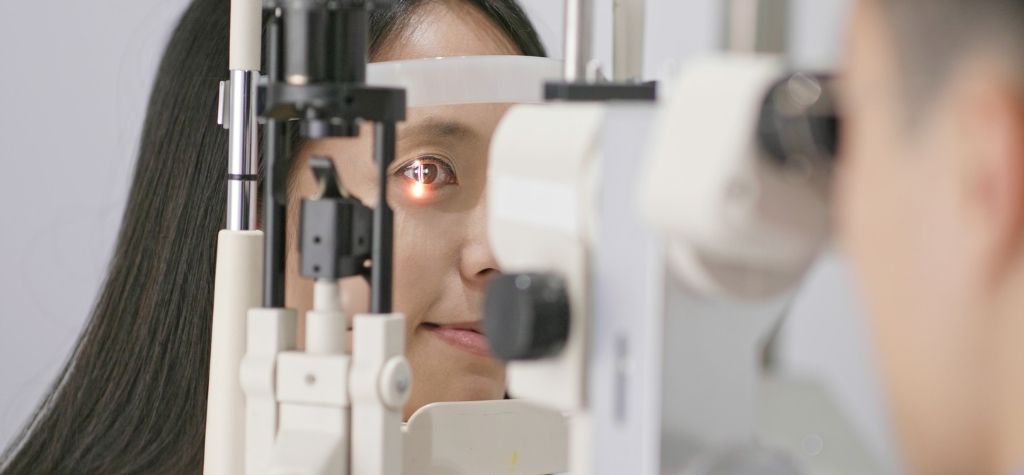Glasses help millions of people see clearly every day, yet a persistent myth refuses to fade: will wearing them constantly make your eyes lazy or weak? If you’ve ever been tempted to “give your eyes a break” or worry that your prescription is making your vision worse, you’re not alone. In this article we’ll explore how corrective lenses work, what science says about wearing glasses, and whether overuse could harm your eyes. Along the way, you’ll hear from trusted eye health authorities and get practical advice for keeping your eyes comfortable and healthy.
Why This Myth Won’t Die

The idea that glasses weaken your eyes has circulated for decades. At first glance it seems plausible – if muscles in other parts of your body become weaker when you rely on external support, why wouldn’t the same happen in your eyes? However, vision isn’t controlled by a single muscle. Sharp sight depends on how light is focused through the cornea, lens and retina. When any of those structures are slightly misshapen, light doesn’t land correctly on the retina and images appear blurry. This mismatch is called a refractive error and common types include nearsightedness (myopia), farsightedness (hyperopia) and astigmatism.
Eyeglass lenses bend light before it enters your eye so that it lands properly on the retina. According to the U.S. National Eye Institute (NEI), “eyeglasses make your vision clearer while you’re wearing them — but they don’t change your eyes at all” and “wearing glasses doesn’t make your eyes weaker or your vision worse”. In other words, lenses compensate for a refractive error but do not alter the underlying structure of your eyes. Despite this, many people still believe that prolonged use might cause dependency. To understand why this isn’t true, let’s see how glasses actually work.
How Do Glasses Work?
Your eye’s cornea and lens focus light onto the retina, where photoreceptor cells turn the light into signals for your brain. If the eye is too long or too short, or if the cornea isn’t perfectly curved, light lands in front of or behind the retina. Glasses correct this by bending incoming light before it enters the eye. Single‑vision lenses correct either distance or near vision, while bifocal and multifocal lenses can correct both. The NEI explains that eyeglass lenses “work by bending light” to make it focus correctly on the retina. Because the lens does the bending outside your eye, it doesn’t change any of the eye’s muscles or anatomy. When you remove your glasses, your vision returns to its uncorrected state.
A Quick Definition: Refractive Errors
Refractive error: A vision problem that occurs when the shape of the eye prevents light from focusing directly on the retina. Common types include myopia (nearsightedness), hyperopia (farsightedness), astigmatism (uneven curvature of the cornea) and presbyopia (age‑related loss of near focus).
Do Glasses Make Eyes Weak? Evidence From Trusted Sources
Several medical organizations and universities have tackled the question of whether wearing glasses can weaken your eyes. Their conclusions are remarkably consistent:
- Mayo Clinic Health System: The clinic notes that eyeglasses worn to correct nearsightedness, farsightedness, astigmatism or presbyopia “will not weaken your eyes”. They emphasize that glasses simply adjust how light rays enter the eye; they do not damage the eye or cause it to depend on the lenses. Using your eyes normally will not wear them out.
- Harvard Health Publishing: A Harvard article debunks the myth that it’s best not to wear glasses all the time. It states that not wearing glasses when you need them will strain and tire your eyes rather than giving them a rest. The article adds that eye exercises will not prevent the need for glasses and reading in dim light will not damage the eyes.
- UCLA Health: When readers wrote to Ask the Doctors about whether glasses weaken eyesight, UCLA physicians explained that “using over‑the‑counter readers or any corrective lenses does not weaken or damage your eyesight”. Needing stronger readers over time simply reflects presbyopia, an age‑related loss of lens flexibility. However, they note that wearing the wrong glasses can cause headaches and fatigue.
- National Eye Institute: The NEI underscores that glasses make your vision clearer while you’re wearing them but do not change your eyes. In other words, glasses correct the symptom (blurry vision) without altering the cause (the shape of your eye). Your vision does not worsen because you wear them.
Taken together, these expert sources make a clear point: wearing glasses—even all day—does not weaken your eyes. Your eyes may change with age or due to underlying conditions, but your glasses are not to blame.
Why Does Vision Change Over Time?

If glasses don’t cause vision to deteriorate, why do many people feel that their prescription becomes stronger after they start wearing glasses? Two key factors are at play: natural progression of refractive errors and aging of the eye’s lens.
Myopia Progression and the Under‑Correction Debate
Myopia, or nearsightedness, often develops during childhood and progresses into young adulthood. Researchers have explored whether wearing glasses influences the speed of this progression. A 2020 review published in the Journal of Clinical Medicine notes that speculation about spectacles making eyes “lazier” dates back to the early 20th century. Some models proposed that continuously correcting myopia could exacerbate it. However, clinical trials evaluating under‑correction (purposely wearing glasses that are too weak) found no significant relationship between full correction and myopia progression. In fact, under‑correcting by more than one diopter may accelerate myopia.
These findings suggest that avoiding or reducing your glasses prescription is not a good strategy. Wearing the correct prescription helps you see clearly and may slow myopia progression, especially in children. If you are concerned about your child’s rapidly changing prescription, talk with an eye doctor. Treatments like specialized contact lenses or low‑dose atropine drops can sometimes slow myopia progression, but removing glasses alone is not effective.
Presbyopia: Age‑Related Farsightedness
Starting in your 40s, you may notice that reading small print becomes difficult. This condition, presbyopia, occurs because the lens inside your eye stiffens with age, reducing its ability to focus on near objects. The UCLA physicians explain that needing stronger reading glasses over time reflects presbyopia, not weakness caused by the glasses. Wearing readers does not make the problem worse; it simply helps you focus comfortably.
Lifestyle Factors: Screen Time, Diet and Lighting
Although glasses don’t weaken your eyes, other factors can contribute to eye strain and discomfort:
- Extended screen time: Digital devices require your eyes to focus up close for long periods. This can lead to digital eye strain symptoms like dryness, blurred vision and headaches. Using the 20‑20‑20 rule (every 20 minutes, look 20 feet away for 20 seconds) and keeping screens at arm’s length can help.
- Poor lighting: Reading in dim light won’t damage your eyes, but it can make them tired faster. Ensure your work and reading areas are well lit.
- Diet and hydration: A diet rich in leafy greens, omega‑3 fatty acids and vitamins C and E supports eye health. Drink plenty of water to stay hydrated, as dry eyes can cause discomfort.
Children and Vision Development
Children’s eyes are still developing, so misconceptions about glasses can be particularly harmful. According to the NVISION Vision Center, when adults wear the wrong prescription it may cause eye strain but will not hurt their vision. However, if children wear the wrong prescription it can make myopia progress faster. Another myth is that forcing children to go without glasses strengthens their eyes. NVISION warns that this idea can lead to eye strain in adults and worsen refractive errors in children, especially myopia.
Because children’s eyes change quickly, regular eye exams are essential. Signs your child may need an updated prescription include squinting, holding objects very close, headaches or sitting too near the television. Early intervention ensures clear vision and reduces the risk of learning difficulties related to poor sight.

What Happens When You Wear the Wrong Prescription?
Wearing glasses that are too weak or too strong won’t permanently damage your eyes, but it can cause uncomfortable symptoms. The UCLA doctors note that the wrong lenses can lead to headaches and eye fatigue as your eyes strain to achieve optimal focus. NVISION echoes this, explaining that adults may experience eye strain, soreness or fatigue when using an incorrect prescription. In children, wearing the wrong prescription can speed up the progression of myopia.
If your new glasses feel off for more than a week or two, schedule a follow‑up appointment. An optician can verify that the lenses match your prescription and adjust the fit. Sometimes tiny changes in lens alignment or pupillary distance make a big difference in comfort. Do not continue wearing a prescription that causes headaches or nausea; this can discourage you from using glasses, leading to more strain when you avoid them.
Common Myths About Glasses Debunked
Let’s review a few lingering myths and the facts that dispel them:
- “Wearing glasses weakens your eyes.”
Fact: Medical experts uniformly agree that glasses do not make your eyes weaker. They simply correct refractive errors. - “Going without glasses will strengthen your eyesight.”
Fact: Not wearing needed glasses forces your eyes to work harder and can cause strain. It does not slow or reverse myopia progression. - “Eye exercises or reading in the dark change vision.”
Fact: Eye exercises won’t prevent or cure the need for glasses, and reading in dim light may tire your eyes but won’t damage them. - “Children should outgrow glasses.”
Fact: Many children with myopia or other refractive errors will require glasses throughout school. Ensuring they have the correct prescription can slow the progression of myopia. - “Glasses cure vision problems permanently.”
Fact: Glasses provide sharp vision when worn but do not change the physical shape of the eye. Refractive surgery (LASIK or PRK) can reduce or eliminate the need for glasses for some people, but it has its own risks and is not for everyone.
How to Keep Your Eyes Comfortable and Healthy

Although glasses don’t weaken your eyes, taking care of your vision is still important. Here are practical tips for maintaining comfortable, healthy eyes:
- Get regular eye exams. The NEI recommends seeing an eye doctor as often as your provider suggests. Routine exams catch changes in vision early and ensure your prescription remains accurate.
- Follow the 20‑20‑20 rule. When working on a computer or reading, take a break every 20 minutes to look at something at least 20 feet away for 20 seconds. This relaxes your focusing muscles and reduces digital eye strain.
- Wear sunglasses outdoors. Ultraviolet (UV) light can damage the cornea and lens over time. Choose sunglasses that block 100 % of UVA and UVB rays.
- Stay hydrated and blink often. Dry environments and long screen sessions can reduce blinking. Blinking spreads tears over your eyes, keeping them moist and comfortable.
- Eat for eye health. Foods rich in lutein, zeaxanthin, omega‑3 fatty acids, vitamin A and vitamin C support eye health. Include leafy greens (spinach, kale), orange vegetables (carrots, sweet potatoes), citrus fruits and fish like salmon or sardines in your diet.
- Manage chronic conditions. High blood pressure, diabetes and autoimmune disorders can affect your eyes. Work with your healthcare providers to control these conditions and schedule eye exams more frequently if needed.
- Teach children good habits. Encourage kids to play outdoors (which may help slow myopia progression) and take breaks from devices. Make sure they wear the correct prescription and protective eyewear during sports.
When To See an Eye Doctor
Contact an eye care professional if you experience any of the following:
- Sudden changes in vision, such as flashes of light, floaters or a curtain blocking part of your vision.
- Persistent eye pain, redness or swelling.
- Headaches or eye fatigue that don’t improve with rest or a new prescription.
- Difficulty focusing at near or far distances despite wearing your glasses.
- Children who hold books very close, sit too near the television, or struggle in school due to vision issues.
Early diagnosis and intervention can prevent more serious problems. Don’t wait until vision problems interfere with daily activities to seek help.
Conclusion: Trust the Experts, Not the Myths
The belief that glasses can weaken your eyes is persistent but untrue. Leading eye health organizations—from Mayo Clinic to Harvard, UCLA and the National Eye Institute—agree that glasses do not change your eyes or make your vision worse. Vision changes over time because the eye’s shape naturally evolves or because conditions like myopia progress, not because you wear glasses. In fact, not wearing needed glasses can lead to eye strain and fatigue, and in children, skipping the correct prescription may accelerate myopia.
Wear your glasses with confidence, follow your eye doctor’s advice, and adopt healthy habits to keep your eyes comfortable. By understanding how vision works and dispelling common myths, you’ll be better equipped to care for your eyesight for years to come.

